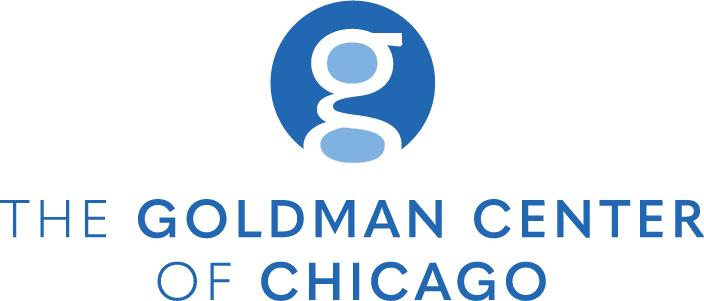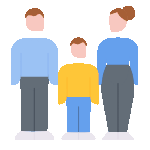All About Early Intervention
Early Intervention is a state-run collection of services to support children with any type of developmental delay. Children from infancy through age three may receive services for delays in language, movement, learning, social-emotional functioning, and self-help skills. Services may also include medical support, mental health support, or general guidance for families to support their children at home.
Providers may include special education teachers, speech therapists, audiologists, psychologists, occupational therapists, social workers, physical therapists, nutritionists, pediatricians, nurses, and family therapists.
How can I apply for Early Intervention in Illinois?
Use the office locator to find the Early Intervention Child and Family Connections center near you or call 1-800-843-6154. A service coordinator can support you in starting the process. Your child’s pediatrician may be able to help connect you with your local Early Intervention Child and Family Connections Center.
What does Early Intervention look like?
Once you apply and your child is deemed eligible, a service coordinator will be assigned to you and will be a part of a team that develops an Individualized Family Service Plan (IFSP) within 45 days. This plan will outline types of support in areas where your child needs help. The first step of developing this plan may involve interviews with parents or guardians, observations of your child, or formal evaluation of your child. The team sets specific, realistic goals and outlines the services they will provide to help your child reach those goals. They present these goals in a group meeting where you can ask questions, as well as approve or reject the goals.
Depending on the goals, the different providers may provide direct, monitoring, or consultative support services. Direct services are when the provider works with the child directly (on video or in person). This could mean going to an office, participating in a Zoom call, or having a provider in your home. Monitoring means that the provider will regularly check on their progress and provide activities for the family to support their progress. They may call you to ask questions about progress or come to observe your child. Consultative support may look like observing the child and sharing recommendations with the family or other service providers, without collecting specific information like monitoring.
The whole IFSP is reviewed at least every six months, and then again after a year. If your child still requires support due to continued developmental delays, the team creates a new IFSP with new goals.
How much does Early Intervention cost?
Some services through Early Intervention require payment, but how much you pay depends on a few factors. These factors include your income, if you are receiving federal assistance, and how many children are in your household. A calculation determines how much your family can pay per year, then that fee is split up into monthly payments. If you receive federal assistance through WIC, All Kids, or have an income level of 185% or below the poverty level, you will not be required to pay for services. If you have insurance, they may pay a portion of the cost for the services after the initial calculation.
What’s the difference between private therapy and early intervention services?
The IFSP guides Early Intervention services. The IFSP outlines your child’s goals that all team members must agree on. Many Early Intervention services may be provided at little to no cost.
If you believe your child may benefit from more support than the IFSP outlines, you can seek private therapy. Private services that are not a part of the IFSP can be billed to your insurance or paid out-of-pocket.
Can I have my child in private therapy and Early Intervention at the same time?
Yes, services provided through Early Intervention or a private provider can both occur for your child under three. You can have both services billed to your insurance, as well. If you are interested in speech and language, ABA therapy, occupational therapy, or psychological services for your child in the Chicagoland area, please consider seeking additional evaluations through the Goldman Center and therapeutic services through Chicago Speech Therapy, Chicago Occupational Therapy, and Chicago ABA Therapy.









